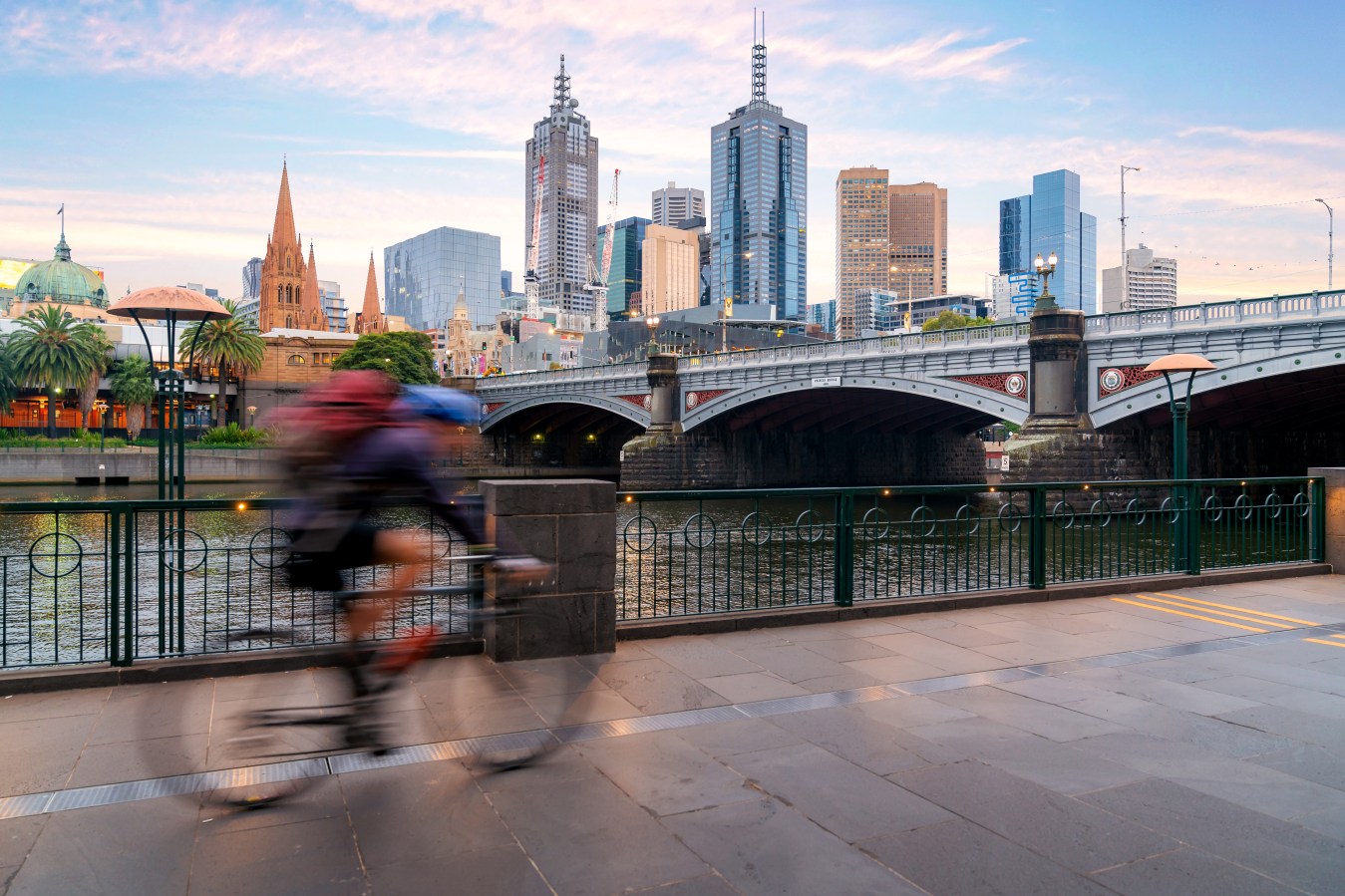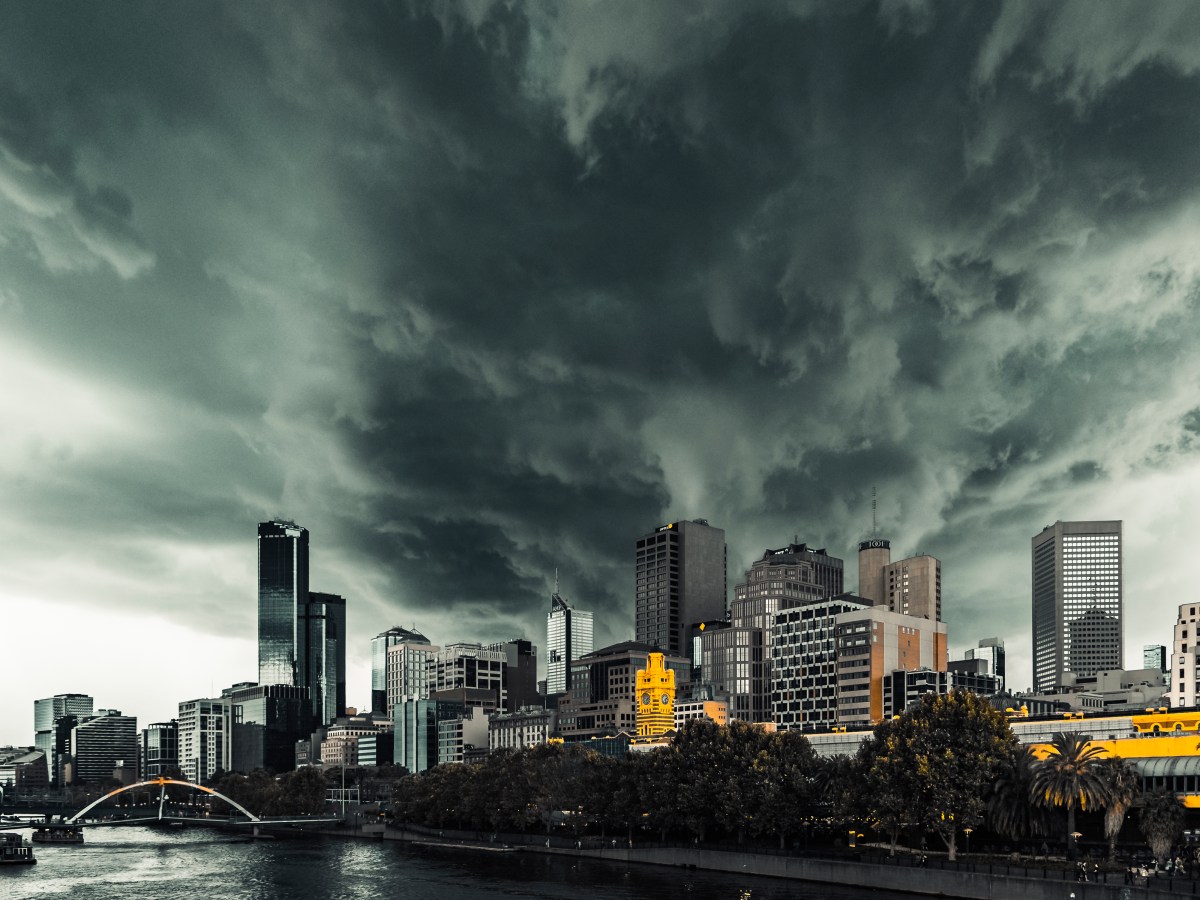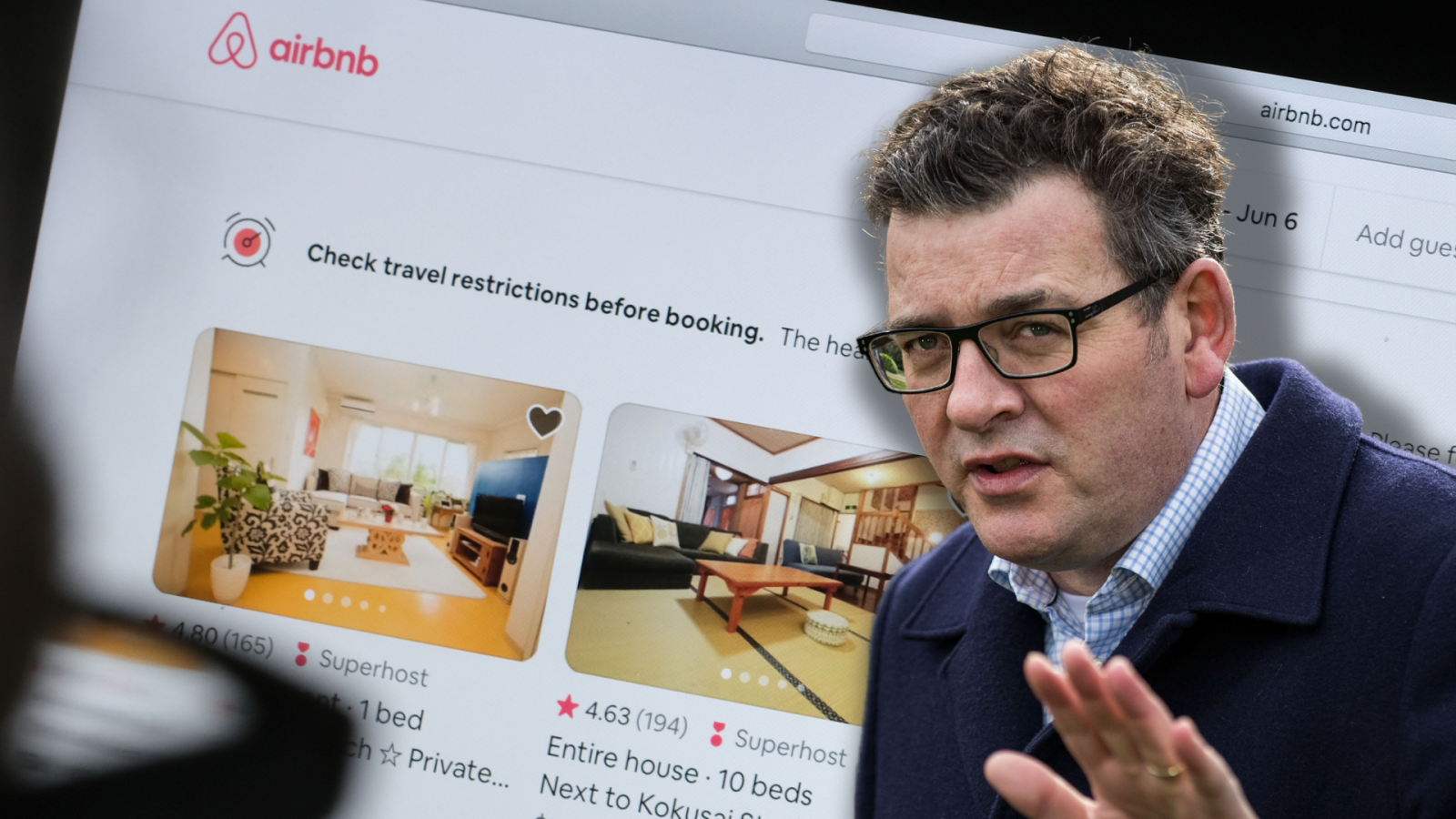Marqo completed the Series A round just six months after raising an $8.1 million seed round. The funds will go toward establishing a larger footprint in San Francisco where Marqo will now be headquartered.
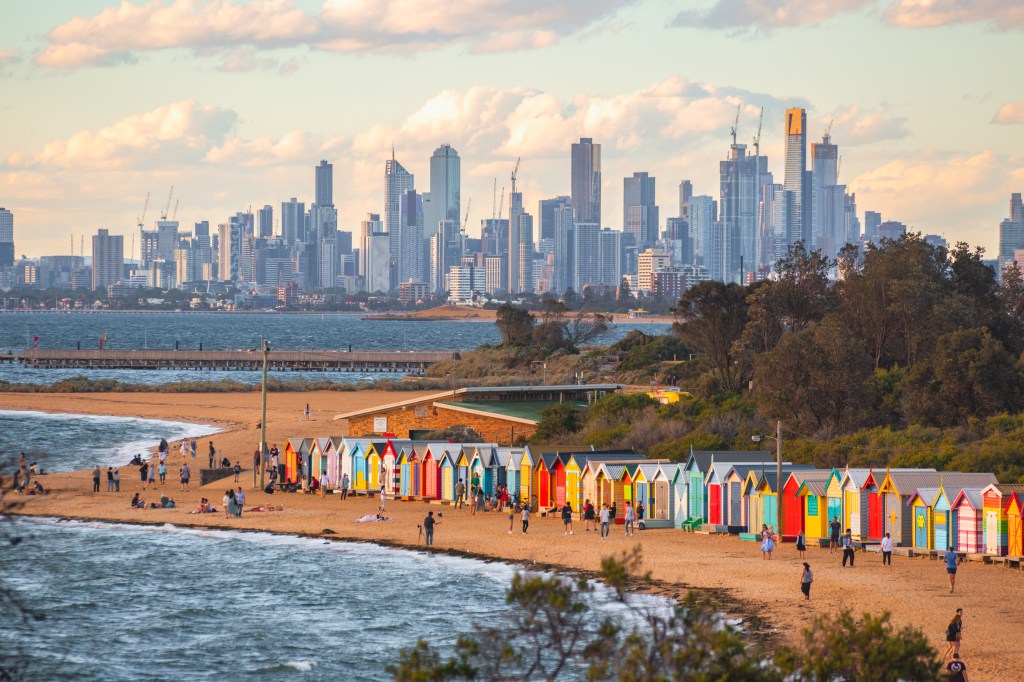
The Melbourne-born startup founder of innovative AI company Marqo is packing his bags and moving to the Bay area. Tom Hamer will be living in San Francisco by the end of the month, to spearhead the commercial growth of the company.
Hamer and Marqo co-founder, physicist Jesse Clark, established the company in Melbourne in 2022. Clark will stay in Melbourne to run and grow the engineering team, while Hamer is focusing on hiring and expanding the sales team in California.
The founders both worked at Amazon Web Services prior to starting the company – Hamer in Sydney and Clark in San Francisco. They founded Marqo to provide a solution to manage unstructured data using vector search.
“Unstructured data makes up more than 80 per cent of all enterprise data and is growing rapidly,” a Marqo press release states.
“Consider the volume of emails you send or receive every day, the number of Google Docs you open, the social media posts you create or the videos and images you engage with. That’s all unstructured data — part of a diverse and rapidly expanding set of information that lacks a predefined data model. It is highly relevant and valuable for businesses but extracting meaningful insights from it is a complex and challenging task.”
Marqo currently has 25 staff and is looking to grow the team further. Blackbird participated in both recent rounds of fundraising and calls the founding team ‘one of the more impressive technical founding teams we’ve met.’
“We realised that there was this big opportunity in ’embedding.’ or vector-based search, because of all the innovation in AI,” Hamer tells Forbes Australia.
“What developers were really lacking was the tools to put these kinds of really powerful search experiences into production.”

The 26-year-old entrepreneur who attended Scotch College in Melbourne was undertaking a Masters at Cambridge when he began working on vector search in his spare time. The technology facilitates a simpler way of comparing one thing to another using AI.
“You can compare text against text. So you can say, ‘this is how similar these two sentences are,'” says Hamer.
“You can also compare text against images, you can take text, which might say, ‘dog,’ and ask if that is similar to this photo with a dog. You have this intermediate representation that’s created using AI. These embeddings, they’re also called vectors.”
Marqo clients include Temple and Webster, Core Logic and Redbubble.
Further growth of clients will be best achieved by having a bigger team in San Francisco, the epicentre of technology startups, Hamer says. He notes that Marqo remains committed to having its engineering team in Melbourne.
“In terms of commercialising technology, the talent in San Francisco is really good. Marketing, technology, sellers, sales – those kinds of functions. We’re going to grow a significant presence in SF,” says Hamer.
The startup scene in Victoria
As part of the US growth, the official headquarters of Marqo will shift to California, which is a loss for the garden state, and for the Australian startup ecosystem.
Despite a difficult 12 months for fundraising, the Victorian startup ecosystem where Marqo was founded, grew by $12 billion in 2023 to reach $103 billion.
Statistics provided by LaunchVic and Dealroom.co show that Victoria is home to 19 unicorns, valued at more than $66 billion. They include Airwallex, Judo Capital, Linktree, Culture Amp, MYOB, and REA Group.
There are 3,200 startups in the state, and around one-third of them are backed by VC.
The Healthtech and biotech sector led the way for Victorian startup funding in 2023. Fintech and Real Estate rounded out the top 3.
Those three sectors contributed significantly to the $103 billion value now attributed to Victorian startups. The state’s startup ecosystem has grown 21x since 2016.
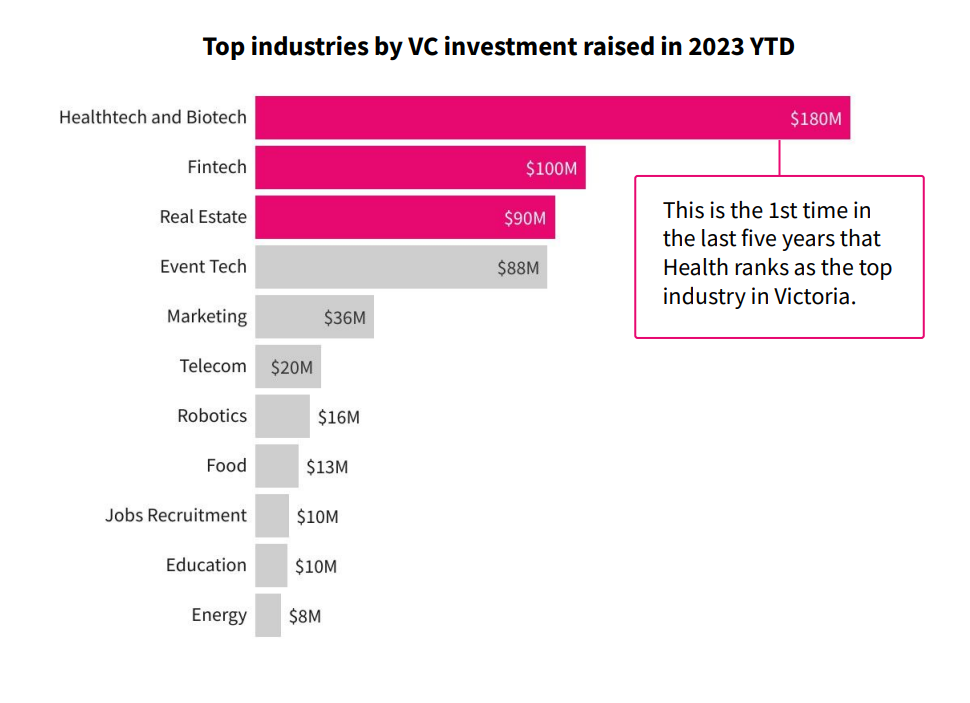
In the leading Healthtech and Biotech sector, Mesoblast, SEER Medical, and Ena Respiratory received the biggest checks last year.
It is not all good news from the LaunchVic and Dealroom.co report, however.
Funding for VIctorian startups dropped from $2.3 billion in 2022 to $734 million — less than a third of that — in 2023. The height of funding was in 2021 when $2.5 billion went toward Victorian startups.
No Victorian startup has raised more than $100 million since 2022.
“This year has been tough for startups attracting venture capital,” says LaunchVic CEO Kate Cornick. “Despite this, Victoria’s ecosystem has continued to grow with a valuation now greater than $100B and a total jobs increase of 12.5 per cent since the last employment report in 2020,”
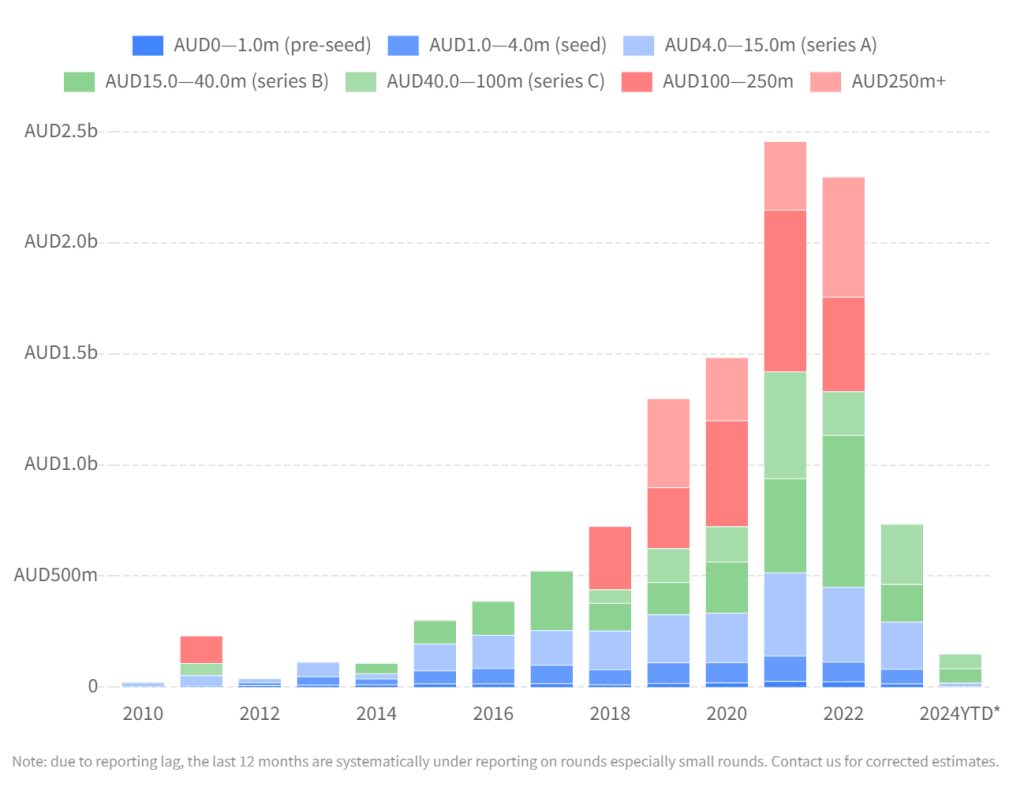
Other key statistics from LaunchVic
- Health, Fintech and Real Estate startups raised 62% of all VC investment in 2023, and they make up 43% of all startup jobs in Australia.
- The top 5 biggest unicorns in Victoria create more than 20% of all local jobs.
- The top 5 employers – REA Group, SEEK, MYOB, Carsales and Judo Bank – are
responsible for 7.5K jobs. - Victorian funding is still beaten by funding that goes to NSW headquartered startups. The states with the third largest amount of startup funding is Queensland.
Look back on the week that was with hand-picked articles from Australia and around the world. Sign up to the Forbes Australia newsletter here or become a member here.
